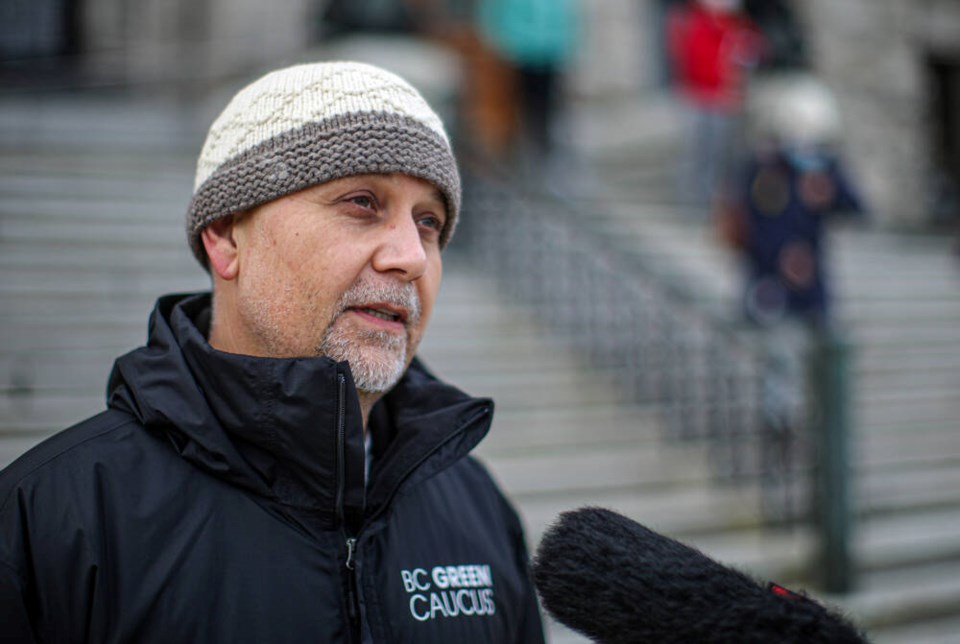First Nations child welfare advocates are urging the province to bring in Indigenous oversight following the 2021 death of an 11-year-old boy and the abuse of his eight-year-old sister while in foster care.
But nine months after the province passed legislation to let Indigenous communities to establish their own child-welfare systems, the Ministry of Children and Families has not hired the director of Indigenous child welfare who is to be responsible for overseeing that process.
And the ministry says it will be several more months before a director is hired.
Mary Teegee chairs the Indigenous Child and Family Services Directors, a group representing directors of 24 Indigenous child agencies. She wrote a letter to Premier David Eby this week calling for “immediate measures” to fix the gaps in the child-welfare system that has historically failed Indigenous children.
“Many of us have worked within the child welfare system for decades,” Teegee wrote in the letter.
“We have seen how the system fails our children, youth and their families and we have seen the tragic consequences of those failures. We have dedicated ourselves to reforming this broken system, but the death of this child makes it clear that there is more work to be done.”
Asked by Postmedia News on Friday why an Indigenous child welfare director hasn’t been hired, Eby did not answer directly, but said he’s meeting with the First Nations Leadership Council about the issue.
Eby said it’s clear that the “system failed catastrophically” in the “shocking and disturbing death of a child in foster care.”
“We’re mapping out to a path forward to ensure that we all have confidence in the system delivering the way that it should,” Eby said during a news conference in Victoria.
“The answer here is that Nations need to assume jurisdiction over their own kids. And that is ultimately what is going to provide confidence Nation to Nation that their kids are being looked after. They have the control. They have the oversight and they’re supporting their kids.”
Children’s Minister Families Mitzi Dean was not available for an interview Friday but the ministry said they are developing a “concept paper” on the Indigenous child welfare director role and will give it to First Nations in the fall for input.
The Indigenous child welfare director will not have oversight over First Nations who take over jurisdiction of child welfare cases. Rather the director will help Indigenous communities develop their own child welfare system and reach co-ordination agreements with the province.
Indigenous communities can also choose whether to allow oversight from the representative for children and youth, Jennifer Charlesworth.
“I absolutely think that position is critical,” Charlesworth said of the Indigenous child welfare director.
Teegee said it’s important that the director role is more than a “token position” with no teeth.
The Indigenous child welfare director “will take a proactive approach when it is proposed that an Indigenous child or youth be taken into care or if there are issues within care,” the ministry said, which includes continuing reassessments and ensuring appropriate planning, communication and involvement with the child’s community and extended family.
Teege also called for the creation of an Indigenous-led advisory committee to co-ordinate with Charlesworth as she investigates the child’s death and the abuse of his eight-year-old sister. The child watchdog is required by law to wait until criminal proceeding are over before her investigation can begin.
The two foster parents, whose identities are protected under a publication ban, pleaded guilty to manslaughter and aggravated assault. The man and woman, who are related to the children’s biological parents, were sentenced to 10 years in prison.
The 11-year-old boy, was starved, tortured and beaten to the point that “he had the appearance of a child from the Holocaust,” wrote provincial court judge Peter La Prairie in his reasons for sentencing. His sister, eight, survived horrific abuse, including whippings, choking and being forced to consume her own feces, vomit and urine.
Ministry social workers did not check in on the children for seven months either in person or virtually. Teegee, Indigenous leaders and opposition MLAs have called for Dean to resign over the handling of the case.
“I think it’s pretty safe to say there’s a complete loss of trust in the current system,” said Green MLA Adam Olsen, a member of the Tsartlip First Nation. “Regaining trust is unlikely without a massive overhaul, without different leadership all the way through the organization.”
Teegee said social workers led by Indigenous child welfare agencies will be better able to build trust and relationships with foster families which is a “foundational piece for good social work.”
Social workers under the Indigenous Child and Family Services agencies follow strict guidelines that ensure a maximum caseload of 20 children per social worker and requires a social worker to visit children in care every 30 days. Teegee pointed out that’s more stringent than the Ministry of Children and Family’s standards which require visits every 90 days and set no cap on caseloads.
The Splatsin First Nation in March became the first Indigenous community in B.C. to take control of its child-welfare system under new federal and provincial legislation.
Four more First Nations — Sts’ailes First Nation, Cowichan Tribes, Gwa’sala-‘Nakwaxda’xw Nations and the Huu-ay-aht First Nations — are in discussions with the federal and provincial government about establishing jurisdiction over child welfare. The new system also allows for information sharing and consent agreements between the province and Indigenous governments.
The reforms are aimed at reducing the overrepresentation of Indigenous children in the child-welfare system, where 68 per cent of children in care are Indigenous even though they make up less than 10 per cent of the B.C. population.



